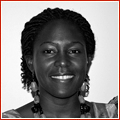African countries need to ensure that the health of refugees is protected during the COVID-19 pandemic
Posted: 21 June, 2021 Filed under: Omotunde Enigbokan | Tags: accessing healthcare, Africa, African Commission, coronavirus, COVID-19, gender-based violence, government, health care, health services, human rights, pandemic, refugees, status, UN, UNHCR, vaccination, women, World Health Organisation, World Refugee Day Leave a comment Author: Omotunde Enigbokan
Author: Omotunde Enigbokan
Centre for Human Rights, University of Pretoria
The protection of the right to health for refugees in Africa requires urgent attention, especially in this period when evidence shows that new variants of the coronavirus are spreading. As we celebrate World Refugee Day on 20 June 2021, and against the backdrop of the UNHCR’s theme ‘Together we heal, learn and shine’, it is pertinent that we interrogate how African countries are ensuring that the right to health for refugees, is guaranteed. This is particularly important with the development of COVID-19 vaccines worldwide, and in the onset of the administration of these vaccines in Africa.
Challenges faced by refugees in Africa
Existing research underlines the need for heightening refugees’ access to health facilities. Research further shows that refugees have been particularly hard hit by the COVID-19 pandemic in Africa. This situation is further compounded by the fact that many refugees live in overpopulated camps or reception centres, where they lack adequate access to health services, clean water and sanitation. This makes them more vulnerable to contracting COVID-19.
Love in a Time of Ebola: Africa deserves a human rights determination
Posted: 6 November, 2014 Filed under: Humphrey Sipalla | Tags: Africa, African Charter, African Commission, African Court, AU Human Rights Strategy, Ebola, Guinea, human rights, International Health Regulations, Liberia, outbreak, rule of law, Sierra Leone, United Nations, West Africa, WHO, World Health Organisation 1 Comment Author: Humphrey Sipalla
Author: Humphrey Sipalla
Freelance editor
When the World Health Organisation (WHO) declared “a public health emergency of international concern” in the three fragile West African states of Guinea, Liberia and Sierra Leone, the walls fast closed on them and their peoples. Flight bans, citizen entry bans and ripple effects on trade have been announced by African countries, as well as globally. So severe have been the restrictions that vital energy and food supplies have dwindled, with riots breaking out in some areas. The affected countries have pleaded with “the world” to not inflict collective punishment on their populations, and indeed future.
These real world events have grounding in probably the most innocuously titled yet powerful treaty in the world. Nope, not the UN Charter, not the Geneva or Vienna Conventions… the International Health Regulations (IHR 2005). Usually, ‘regulations’ is legalese for subsidiary legislation. But these regulations treat probably the most incendiary issues in human society: infectious diseases and legality, if not morality of mitigating actions.
The IHR’s aim to provide maximum protection from the international spread of infectious diseases while causing minimal harm to global travel and commerce. It originates from the 1892 International Sanitary Convention that sought to control the spread of cholera in the Suez Canal, providing for coercive ship inspections and quarantines.
It may well be said that the Achilles-like duality of IHR, its true power and weakness, lies not in legal theory but sheer human behaviour. Infectious diseases are frightening. They compound the unknown and bring out the worst elements of our self-preservation instinct. Prior to the 2005 revision, states like India and Peru sat on critical information about disease outbreaks to avoid the punishing reactions of other states. Given the treatment of Guinea, Sierra Leone, Liberia, one wonders what exactly has changed in the real world.
The African Peer Review Mechanism at Ten: From Lofty Goals to Practical Implementation
Posted: 19 March, 2013 Filed under: Adejoké Babington-Ashaye | Tags: African Peer Review Mechanism, African Union, APRM Day, economic integration, good governance, New Partnership for Africa's Development, political stability, sustainable development, World Health Organisation 1 Comment Author: Adejoké Babington-Ashaye
Author: Adejoké Babington-Ashaye
Counsel at the World Bank Administrative Tribunal
March 2013 marks ten years of one of the most innovative initiatives established under the auspices of the New Partnership for Africa’s Development (NEPAD). Created in 2003, the main objective of the African Peer Review Mechanism (APRM) is to foster the adoption of standard practices for political stability, sustainable development and economic integration through experience sharing between member states. As a voluntary process open to all members of the African Union, the steps of the APRM process include a country self-assessment, a review mission by the APRM Panel of Eminent Persons, a review of the ensuing Panel report by APRM Member States, and a finalized programme of action (NPoA) – the blueprint for development agreed upon by all stakeholders. These NPoAs are critical to identifying development challenges, and laying the foundation for legal and policy changes.
As of January 2013, the APRM boasts a membership of 35 States, with Tunisia and Chad as the newest members. Yet, the APRM has been plagued by financial and logistical challenges, stalled peer reviews and an occasionally negative public perception. In this piece, I highlight how a holistic approach to critiquing the APRM sheds light on some of the positive contributions the mechanism has made to development in Africa, and also illuminates the path for the next ten years.

 Author: Marystella Auma Simiyu
Author: Marystella Auma Simiyu